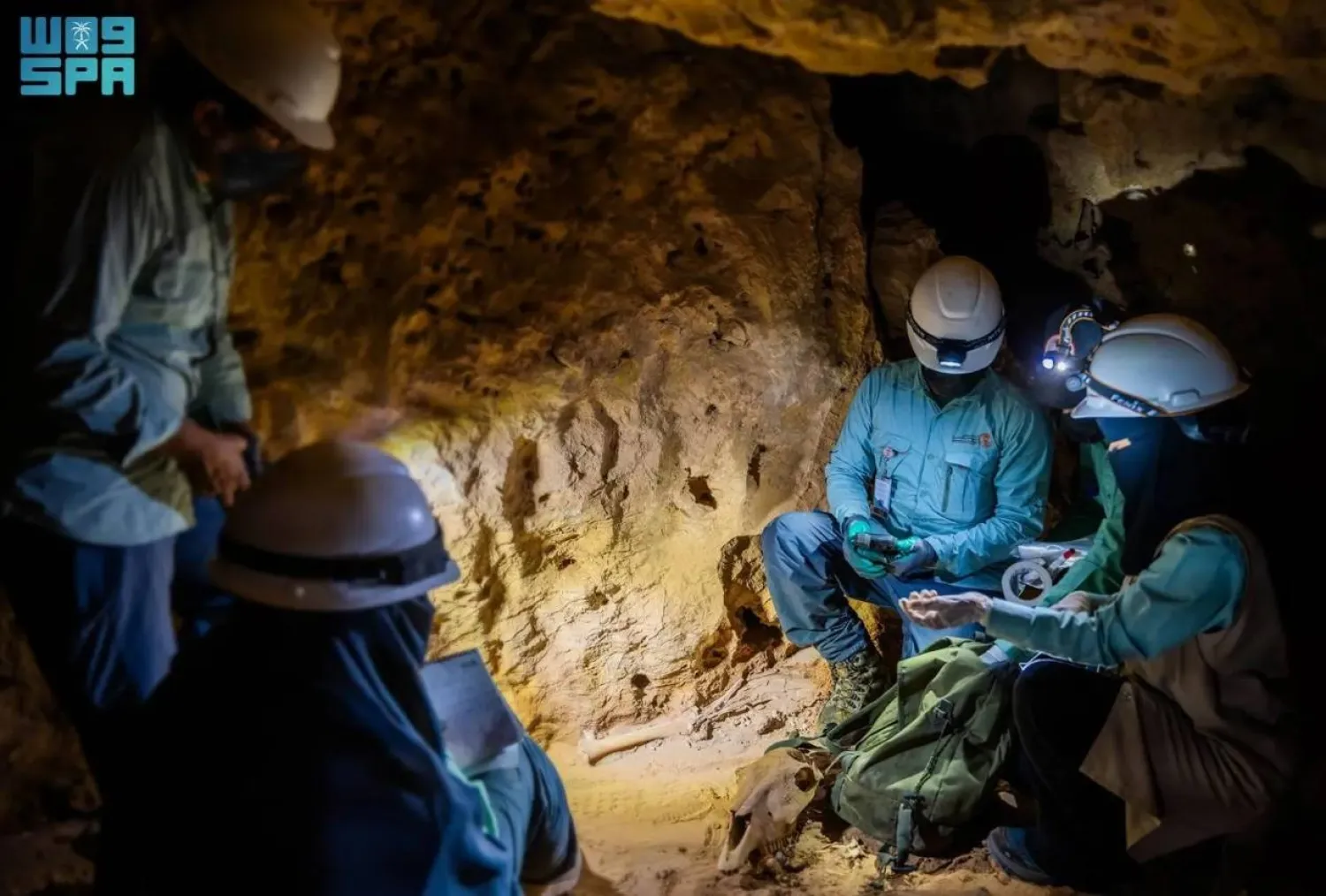The National Center for Wildlife (NCW) is embarking on a groundbreaking exploration program focused on caves in the Northern Borders, the Saudi Press Agency (SPA) reported Sunday.
Launched in 2022, the program is part of a larger endeavor dedicated to monitoring all ecosystems and biodiversity across the Kingdom's diverse terrestrial and marine landscapes, it said.
The program aims to achieve three key goals: international recognition by placing these caves on the global map for biodiversity and natural heritage, historical preservation by recognizing them as natural museums that offer insights into past environments, and wildlife conservation by protecting these unique ecosystems.
"The exploration of these caves holds immense historical and environmental value for the Kingdom," said NCW CEO Dr. Mohammed Qurban. "These caves act as a natural museum, showcasing the evolution of biodiversity throughout the region's history, and providing insights into past environmental and climate changes on the Arabian Peninsula."
These efforts build upon NCW's earlier discoveries of mummified cheetahs found in a cave in northern Saudi Arabia. Estimated to be over 4,000 years old, this find marked the first documented evidence of this species in the Kingdom.
"Based on this discovery, NCW is creating a program to reintroduce hunting cheetahs, allowing them to once again play a vital role in maintaining ecological balance," Qurban said.
According to Qurban, researchers from NCW have uncovered in the Kingdom's caves some of the world's rarest bat species alongside the remains of extinct animals. Classification and age determination of these remains are ongoing, paving the way for potential reintroduction efforts.
"The ultimate goal is to reintroduce these extinct species or their closest genetic relatives, allowing them to reclaim their ecological roles," Qurban said.
With 1,826 documented caves across Saudi Arabia, NCW's program sheds light on the Kingdom's natural heritage while promoting conservation and the potential return of lost species.
Saudi Arabia: NCW Launches Cave Exploration Program in Northern Border Area

According to Qurban, researchers from NCW have uncovered in the Kingdom's caves some of the world's rarest bat species alongside the remains of extinct animals. SPA

Saudi Arabia: NCW Launches Cave Exploration Program in Northern Border Area

According to Qurban, researchers from NCW have uncovered in the Kingdom's caves some of the world's rarest bat species alongside the remains of extinct animals. SPA
لم تشترك بعد
انشئ حساباً خاصاً بك لتحصل على أخبار مخصصة لك ولتتمتع بخاصية حفظ المقالات وتتلقى نشراتنا البريدية المتنوعة







